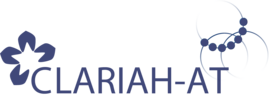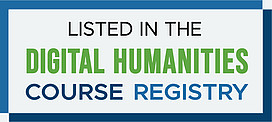Master of Arts in Digital Humanities
The first master’s programme in Digital Humanities in Austria started at the University of Graz in the 2017/18 academic year!
Technical advances in recent decades have led to a new form of research: Digital Humanities. This involves research and teaching at the interface between the humanities and information technology. Using computer-aided research methods offers new possibilities for evaluating scientific sources and drastically changing approaches to research across the wider humanities.
These new approaches are based on an understanding of research in the field of humanities that goes beyond the straightforward use of digital materials to explicitly examine methodological questions, create new fields of research and to create new conditions for the reception of research projects in wider society. Digital humanities also address the issues around making cultural heritage digitally-accessible in a sustainable manner and explore how it can be used in an innovative way.
Video:
Structure and content of the programme
The master’s programme in Digital Humanities is divided into four semesters and comprises a workload of 120 ECTS credits. It enables graduates to carry out detailed analyses based on research questions from their subjects of origin in the humanities and cultural studies (experience of which is deepened through the compulsory elective modules) to produce results and prepare them for different forms of media representation and presentation.
In more concrete terms, teaching modules cover areas such as basic computer science skills, subject-specific research methods, different data formats, description standards, web technologies, databases, programming languages and data visualisation. Amongst other things, the programme also looks at information technology formalisation, as well as the modelling, analysis, processing and management of cultural and humanities data and sources.
Admission requirements
Admission to the master’s programme in Digital Humanities requires a bachelor’s degree or a technical college bachelor’s degree in the humanities or cultural sciences, or another equivalent programme at a recognised domestic or foreign post-secondary educational institution. There is no separate application process for the master’s programme.
The prerequisite for enrolment in the master’s programme in Digital Humanities is a completed bachelor’s degree in a humanities or cultural studies subject. Those who would like to experience the digital humanities before they have completed their bachelor’s degree should consider the basic module and certificate in ‘Information Modelling’ (Informationsmodellierung).
Job fields
Digital humanities scholars often find professional work in a university setting, both at centres and research institutions focusing on the digital humanities, and in more traditional humanities research settings. Other possible fields of work include the conception, implementation and dissemination of research projects in the wider sciences spectrum, as well as the communication and presentation of research results in the humanities and in the field of digital cultural heritage. Many libraries, archives and museums are now working on both the digitisation of their cultural heritage objects and their scientific indexing methods.
The link between the humanities and computer science offers graduates opportunities in the creative industries, in media and IT companies and in fields of work focusing on communication and consulting around the provision and processing of information.







